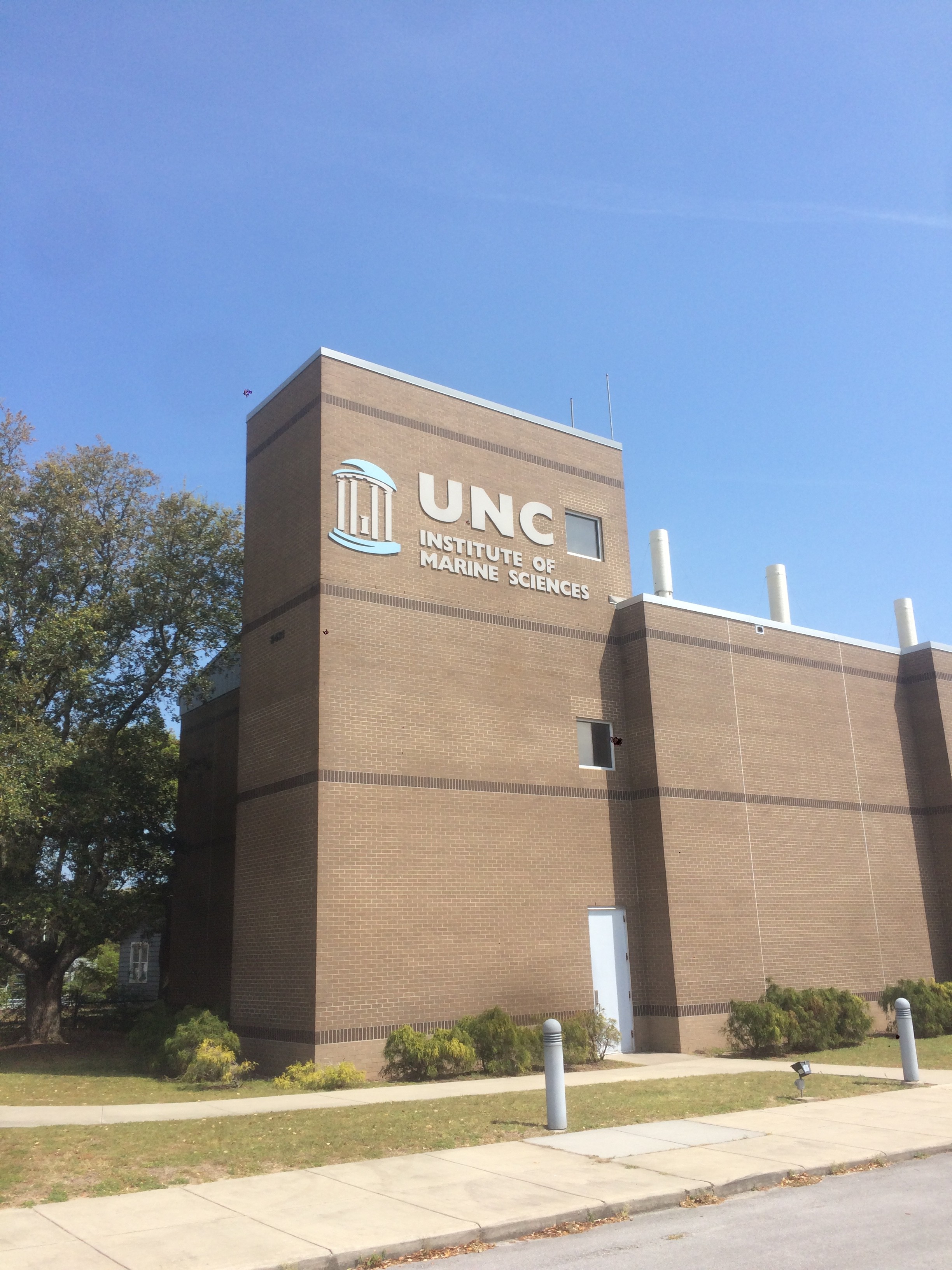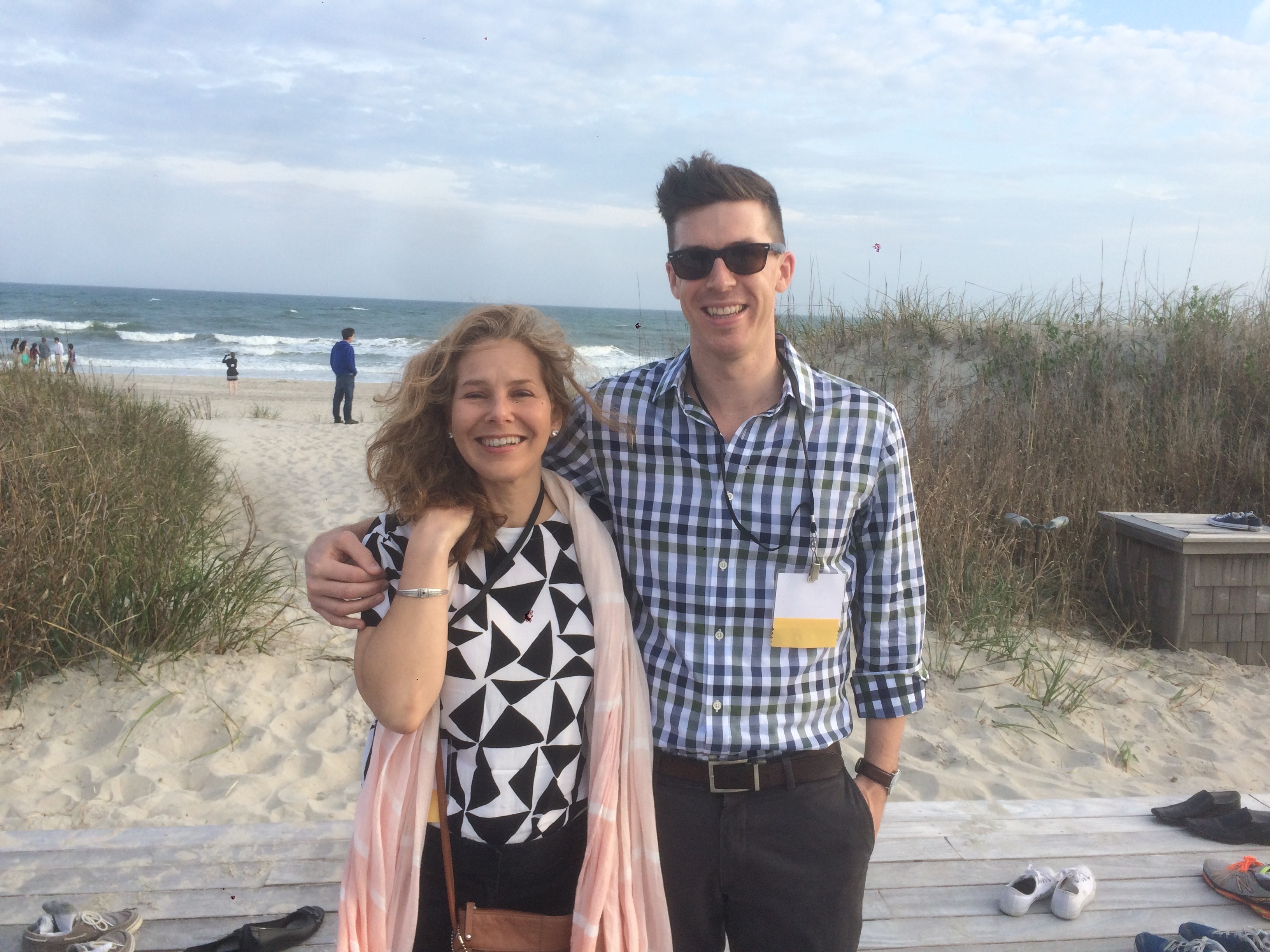27 April 2016
Oceans, policy, and high school students
Posted by Shane Hanlon

The University of North Carolina Institute of Marine Sciences was one of the host venues for this year’s NOSB competition.
By Shane M Hanlon & Lexi Shultz
“Our Changing Ocean: Science for Strong Coastal Communities.” That was the theme this year for the Finals of the National Ocean Sciences Bowl (NOSB), an “education competition that tests students’ knowledge of ocean-related topics, which include cross-disciplines of biology, chemistry, policy, physics, and geology.“ NOSB fills a gap that exists in many schools across the nation as ocean sciences are not a core part of many high school curriculums. The competition helps to prepare students for ocean- and STEM-related careers by molding them to become informed citizens and environmental stewards.
NOSB is fashioned in the likeness of the National Science Bowl. Students participate in quiz-bowl competitions around the nation (each region is a different “bowl”, e.g. The Chesapeake Bay Bowl in Pennsylvania, The Salmon Bowl in Oregon, The Tsunami Bowl in Alaska). The winners of each regional bowl then make their way to the national competition which is hosted in a different region every year. This year was in Morehead City North Carolina, and so were we.
At the level of the national competition, in addition to the quiz bowl, there is a Science Expert Briefing (SEB) portion. The SEB is a mock congressional hearing where students present science recommendations on a piece of legislation, bettering their understanding of how science informs policy. This year, we were part of that mock congressional panel. Students submitted written testimony on a real piece of legislation prior to the national competition. At the competition, in addition to the quiz-bowl rounds, students submit oral testimony and answered questions posed to them by the mock congressional panel (i.e. science policy experts who serve on the panel). They had to be persuasive, concise, and think on their feet, skills that will be crucial no matter their chosen careers. We both agree that we wish we had this type of opportunity in high school. It took us years to develop the skills that we possess today in science communication and policy and we both started down our career paths much later than these students.

Us at the banquet the night before competition began.
We do have to note that judging is quite a bit of work. Between becoming acquainted with the legislation, judging the written testimony prior to the competition, attending the national competition (a six-hour drive this year) and judging the oral testimony, the amount of time put into the competition on our part is significant. However, it’s entirely worth it. Seeing the passion and commitment to the oceans and sciences of so many students is the best reward.
No matter what the students who participate in NOSB choose to do in life, the experiences gained there, especially in the SEB portion, will help them throughout their lives. Hopefully though, their experiences will lead them to a career where they can communicate the importance of the oceans and sciences as a whole to any audience.
-Shane M Hanlon is an AGU Sharing Science Specialist and Lexi Shultz is the Director of AGU Public Affairs.


 The Plainspoken Scientist is the science communication blog of AGU’s Sharing Science program. With this blog, we wish to showcase creative and effective science communication via multiple mediums and modes.
The Plainspoken Scientist is the science communication blog of AGU’s Sharing Science program. With this blog, we wish to showcase creative and effective science communication via multiple mediums and modes.